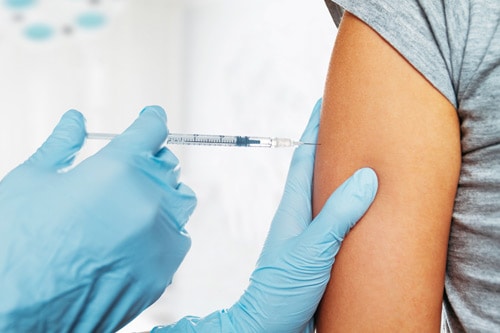
The Joint Committee on Vaccination and Immunisation (JCVI) has published a statement about the outbreak of polio in Greater London, and has outlined a vaccination strategy.
A case of paralytic poliovirus (type 2) was reported in July 2022 and was found in New York state in an unvaccinated adult male. Earlier in March 2022, the World Health Organization (WHO) was informed of the detection of circulating vaccine-derived poliovirus type 3 (VDPV3), which resulted in the paralysis of an unvaccinated three-year-old child living in Israel.
The UK Health Security Agency (UKHSA) is investigating transmission levels in north-east and north-central London. Poliovirus has been identified in further upstream sampling and has been confirmed as present with at least one positive sample in several boroughs.
The JCVI has advised that a rapid booster campaign is needed for children aged one to nine using an inactive vaccine to reduce the risk of children contracting polio, which could result in paralysis, while also raising immunity levels in order to contain the virus.
The disease is known to cause paralysis and 116 cases of the virus have been found in London’s wastewater since February. Polio was eradicated in Europe in 2003 and there have been no confirmed cases of paralysis as a result of the disease in the UK since 1984.
As a serious disease affecting the central nervous system which is spread from person to person, the likelihood of catching polio in the UK has been very low because of the effectiveness of polio (IPV) vaccination programmes.
What has made the current outbreak more complex is that the samples detected are linked to a polio vaccine administered in other countries. This is due to certain areas in the world using an oral polio vaccine and, although this vaccination option is safe, it contains a live virus. This means it can offer considerable immunity, but in this form, it can still spread the virus within groups where many are unprotected.
If the virus continues to be transmitted in this way, the safety profile of the virus contained in the oral vaccine has the chance to mutate and evolve, which can lead to cases of paralysis.
The UKHSA has said that most of the samples detected are the safe vaccine form of polio. The Agency added that a genetic analysis of the samples indicates that spread of the virus ‘has gone beyond a close network of a few individuals’.




